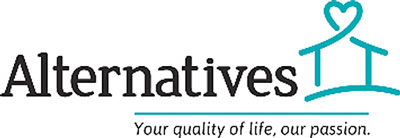February 28, 2018
What is Self-Neglect?

 By Telly Papanikolaou
By Telly Papanikolaou
One can probably come up with many thoughts, ideas and images upon hearing the words ‘self-neglect’ associated with a family member, neighbor, friend, acquaintance, or member of the community. As defined by the National Adult Protective Services Association, self-neglect involves seniors or adults with disabilities who fail to meet their own essential physical, psychological or social needs that threaten their health, safety and well-being. This includes failure to provide adequate food, clothing, shelter and health care for one’s own needs.
A common example might include an older friend with mild dementia who is unkempt and unclean when they used to be quite selective with clothing and care. Over time, the person stops allowing visitors, allows the home to be in disrepair and avoids any assistance or support.
It’s important to become informed of what self-neglect is, and to become aware of the potentially serious safety concerns that a person may encounter as a result. This may include older adults or adults with disabilities with one or commonly reported signs of self-neglect as reported to Adult Protective Services agencies:
- Inadequate heating, plumbing or electrical service that’s been disconnected
- Lack of clear pathways in their residence due to large amounts of clutter
- Animal (sometimes human) feces in the home
- Home is filled with garbage, may be extremely dirty and/or very poorly maintained
- The individual may not be cashing their monthly check, thus creating a situation where their bills are not getting paid
- Being in need of medical care, however either not seeking, refusing, or not following medical recommendations
- Lacking fresh food, oftentimes possessing only spoiled food, or not eating at all
- Refusing to allow others into their home
- Being taken advantage of financially and giving away their money inappropriately
- Dressing inappropriately for existing weather conditions, perhaps lacking in proper clothing
What do you think of when you hear the term “hoarder?” Frequently, we hear “that person is just lazy and doesn’t want to clean up.” The common solution is to get in there, have a mass clean up of the home and get rid of everything. Unfortunately, that approach can actually be counter-productive by creating more anxiety for the individual and strengthening their resolve to continue hoarding as a coping mechanism. Individuals can simply go out after the helpers have left, and retrieve the thrown away items from the garbage.
Instead, and often overlooked even by professionals in the field, is the necessity to learn of, and understand, the root cause of the problem—the circumstances that led the individual to self-neglecting behaviors. In many cases, the person engaging in hoarding tendencies began the behavior years ago or perhaps decades ago due to a mental illness that was undiagnosed or under-addressed. For example, when a person falls into a state of depression whether due to life experiences and/or hereditary factors, a common symptom is a lack of motivation (not laziness) to engage in good self-care practice. In a hoarding situation, it’s important to encourage the individual to work with a counselor to deal with mental health concerns. At the same time, they will build a ‘plan,’ per therapeutic progress, towards reducing the hoarding in order to create a safe home environment. This would include open pathways and egress were there to be an emergency and to gradually help improve the individuals self-esteem and overall quality of life to reduce and/or eliminate self-neglecting behaviors. This takes time—sometimes much time, and patience.
What can you do if you become aware of an older adult or adult with disabilities that is engaging in self-neglecting behaviors? If there is imminent, life threatening risk, call 911. Otherwise, you can contact Adult Protective Services at 1-800-798-0988. The Illinois Department on Aging hopes to fully fund intervention for complex cases of self neglect in Illinois through the coming budget in FY19. At this time, Adult Protective Services will take these reports and work with available programs and services to help the individual.
Filed Under: Health & Wellness, Personal Growth
Trackback URL: https://www.50pluslife.com/2018/02/28/what-is-self-neglect/trackback/


